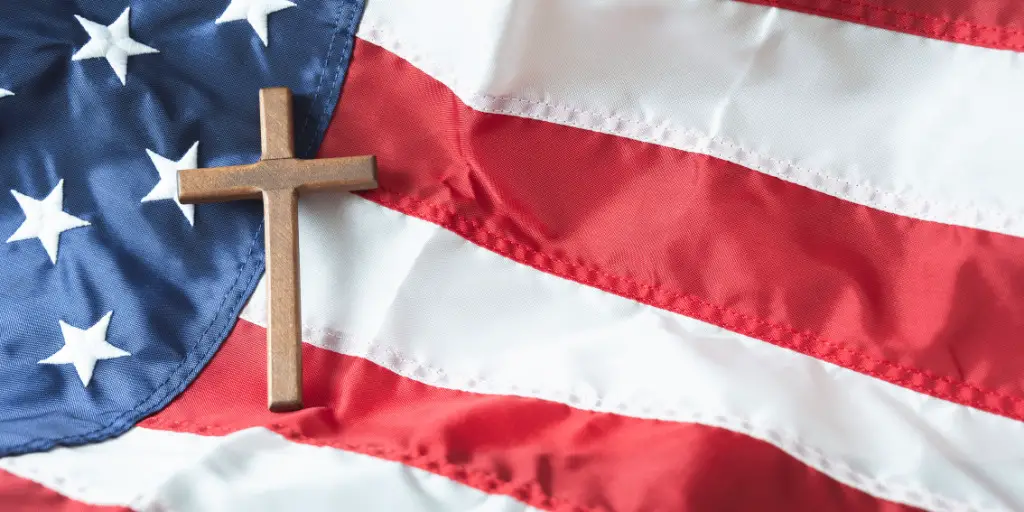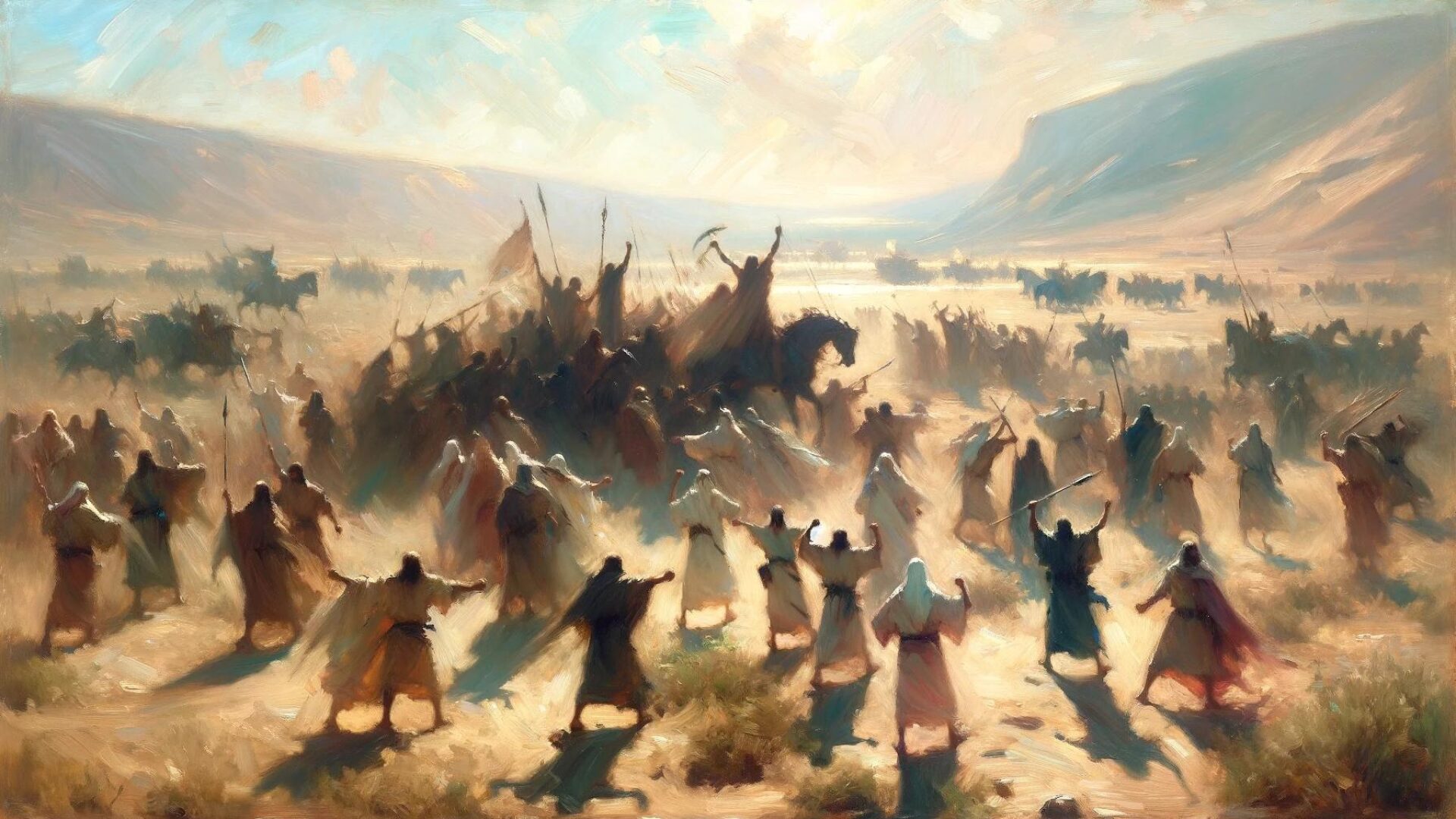Christian culture in America is a multifaceted tapestry of faith and tradition that has shaped the nation in countless ways. With millions of adherents and a rich history spanning centuries, American Christianity encompasses a vast array of practices and customs that are deeply embedded in the fabric of society.
This article provides a comprehensive overview of the various aspects of Christian culture in America, delving into its history, traditions, values, and contemporary challenges. Whether you are a Christian seeking to deepen your understanding of your faith or a curious observer looking to learn more about this important aspect of American life, this article offers insights and perspectives that are both informative and thought-provoking.
Key Takeaways
- Christian culture in America is a diverse and complex phenomenon that encompasses a wide range of practices and beliefs.
- The history of Christianity in the United States is long and rich, with a variety of denominations and key events that have shaped its development.
- Faith-based practices are central to American Christianity, with worship services, prayer rituals, and other spiritual disciplines playing a vital role in the lives of believers.
- Christian values and beliefs have had a profound impact on American society, shaping its moral compass, social norms, and ethical standards.
- The traditional customs and celebrations of American Christian culture are rich and varied, reflecting the diversity of its adherents and their enduring religious heritage.
- Contemporary challenges and trends are affecting American Christian culture, with declining church attendance and the rise of alternative spiritual practices among the most significant.
History of Christianity in the United States
Christianity has been a prominent religious force in the United States since its inception. The first European settlers who arrived in the New World were primarily Christian, and many of the founding principles of the nation were influenced by Christian teachings.
During the colonial period, several Christian denominations were established, including the Anglican Church, Puritanism, and Catholicism. The Great Awakening of the 18th century played a significant role in shaping the religious landscape of the United States, as it sparked a wave of revivalism and evangelicalism. This movement led to the formation of new denominations, including the Methodists and the Baptists, and a renewed commitment to Christian values and beliefs.
Impact of Christianity on American Society
Christianity has had a profound impact on American society, influencing its politics, culture, and social norms. Many of the country’s most influential figures, such as George Washington and Abraham Lincoln, were devout Christians who relied on their faith to guide their actions and decisions.
Throughout American history, Christian institutions have played a vital role in the provision of social services, including education, healthcare, and charity. In the late 19th and early 20th centuries, a wave of social gospel activism emerged, which emphasized the importance of social justice and the pursuit of the common good.
Denominationalism and the Rise of Non-Denominational Churches
Throughout the 20th century, the United States has become increasingly diverse both culturally and religiously. While many Americans still identify as Christians, there has been a decline in formal church membership, and a rise in non-denominational churches, which offer a more flexible approach to worship and faith.
There are now hundreds of non-denominational churches across the country, which often attract younger or more liberal congregants who are seeking a more personalized religious experience. Some of these churches place less emphasis on traditional Christian doctrines and instead focus on community, social activism, or personal growth.
In recent years, there has also been an increase in interfaith dialogue and cooperation, as Christians seek to build bridges with other religious communities and work towards common goals.
| Key Events in Christian History in the United States | Date |
|---|---|
| The First Great Awakening | 1730s-1740s |
| The Second Great Awakening | 1790s-1840s |
| The Social Gospel Movement | 1880s-1920s |
| The Civil Rights Movement | 1950s-1960s |
Overall, the history of Christianity in the United States is a complex and multifaceted one, reflecting the diverse beliefs, practices, and values of its adherents. From the early colonial period to the present day, Christianity has played a significant role in shaping American society, politics, and culture.
Faith-Based Practices in American Christianity
American Christianity is a diverse and multifaceted community that engages in a variety of faith-based practices. These practices vary depending on the specific denomination, but they all share the common belief that faith plays a transformative role in the lives of believers. The following are some of the most common faith-based activities within American Christianity.
Worship Services
Worship services are central to the practice of American Christianity and vary according to the specific denomination. However, some common elements include music, prayer, preaching, and the sharing of the sacraments. Services are often held on Sundays, but some denominations hold services on Wednesdays or Saturdays as well.
Prayer Rituals
Prayer is an integral part of American Christian culture and takes many forms. Personal prayer is usually done privately, while communal prayer is a public event often led by a minister or priest. Many denominations also have specific prayer rituals, such as the Rosary in Catholicism or the Daily Office in Episcopal and Anglican traditions.
Sacraments
Sacraments are sacred rituals that symbolize a believer’s connection to God. These rituals vary depending on the denomination, but they often include baptism, communion, confirmation, and confession. In American Christianity, baptism is usually done by immersion, and the Eucharist is often celebrated with bread and wine.
Spiritual Disciplines
Spiritual disciplines are practices that help believers deepen their relationship with God. These practices include meditation, fasting, and studying scripture. Many denominations also have specific disciplines, such as the Stations of the Cross in Catholicism or the use of prayer beads in the Episcopal and Anglican traditions.
Overall, faith-based practices are a cornerstone of American Christianity and reflect the diverse ways in which believers express their devotion to God. These practices not only help believers deepen their faith but also create a sense of community and belonging within the American Christian community.
Christian Values and Their Cultural Impact
Christian values and beliefs have played a significant role in shaping American society. These values are deeply ingrained in the collective conscience of the nation and have had a profound impact on its moral, social, and ethical standards.
At the core of Christian culture in America are values such as love, forgiveness, compassion, and humility. These values are expressed through charity and social service, as well as through the pursuit of justice and equality. The Christian emphasis on individual responsibility and accountability has also contributed to the development of a strong work ethic and a sense of personal integrity.
Christianity has also had a profound impact on American art, music, and literature. Many of the great works of American culture have been inspired by religious themes and motifs. Christian symbolism and imagery are ubiquitous in American popular culture, from movies and television shows to advertising and fashion.
“We are a religious people whose institutions presuppose a Supreme Being.”
Furthermore, Christian values have influenced American politics and governance. The country’s founding fathers were heavily influenced by Christian principles and saw the establishment of a just and moral society as their highest priority. Throughout American history, religious leaders have played a prominent role in social movements and political activism, advocating for civil rights, peace, and other progressive causes.
Despite the significant cultural impact of Christian values and beliefs, there have been criticisms and challenges from both within and outside the church. Some critics argue that Christianity has been used to justify discriminatory practices and oppressive social norms. Others have taken issue with the dogmatic and exclusionary aspects of Christian doctrine.
Nevertheless, the enduring influence of Christian culture in America remains a testament to the power of faith and tradition in shaping the course of human history.
Traditional Customs and Celebrations in Christian Culture
Christian culture in America is steeped in rich traditions and celebrations that have been passed down for generations. These customs offer a glimpse into the enduring faith and values that continue to shape the lives of millions of Americans.
One of the most significant holidays in the Christian calendar is Christmas. This annual celebration commemorates the birth of Jesus Christ and is marked by special church services, caroling, and the exchange of gifts. Many families have their own unique traditions, such as decorating Christmas trees or lighting candles on an Advent wreath in the weeks leading up to Christmas Day.
Easter is another important holiday in Christian culture, which celebrates the resurrection of Jesus Christ. Many churches hold special services and traditions, such as the lighting of Paschal candles or the carrying of processional crosses. Families may also partake in Easter egg hunts or Easter meals to mark the occasion.
Other Christian traditions and customs are tied to specific denominations or regions. For example, in the Southern United States, it is common for families to have a big meal after Sunday church services, known as a “Sunday Supper.” In the African American community, gospel music and spirituals play a significant role in worship services. In the Catholic tradition, the celebration of All Saints’ Day and All Souls’ Day honors the saints and deceased loved ones.
These traditions and customs are a testament to the lasting impact that Christianity has had on American culture. They serve as a reminder of the enduring faith and values that continue to shape the lives of millions of Americans, regardless of denomination or region.
Contemporary Challenges and Trends in American Christian Culture
American Christian culture is constantly evolving, and many factors are shaping its contemporary challenges and trends. Some of the most significant challenges impacting the community include:
| Challenge | Impact |
|---|---|
| Declining Church Attendance | Many churches are experiencing a steady decline in attendance, which has raised concerns about the future of organized religion in the United States. |
| Changing Demographics | The demographic makeup of the United States is rapidly changing, with increasing numbers of people identifying as non-religious or belonging to non-Christian faiths. This trend has challenged the dominance of Christianity in American society. |
| Alternative Spiritual Practices | Many Americans are turning to alternative spiritual practices, such as mindfulness, yoga, and meditation, which challenge traditional Christian beliefs and practices. |
Despite these challenges, the American Christian community is adapting and evolving in response. Some of the notable trends in American Christian culture include:
- The rise of nondenominational churches and Christian communities that emphasize individual spiritual experience over traditional liturgy and doctrine.
- The adoption of digital technologies, such as livestreaming services and social media, to connect with congregants and spread the message of Christianity.
- The growing emphasis on social justice and political activism within Christian communities, particularly among younger generations.
Overall, the future of American Christian culture is uncertain, but the enduring faith and traditions of the community continue to play an important role in shaping the values and beliefs of millions of Americans.
Conclusion
In conclusion, Christian culture plays a significant role in shaping the fabric of American society. From its early roots to the present day, Christianity has had a profound impact on the values, traditions, and customs of the American people. Through its various practices, including worship, sacraments, and prayer, faith remains central to the lives of millions of Americans.
While Christianity has faced challenges in recent years, such as declining church attendance and changing demographics, the American Christian community continues to adapt and evolve. As American society becomes increasingly diverse, Christianity continues to be a source of unity and solace for many.
As we reflect on the enduring faith and traditions that continue to shape American Christian culture, we are reminded of its profound impact on our society and the lives of millions of Americans. Whether celebrating the rich tapestry of traditional customs and celebrations or facing contemporary challenges, the American Christian community remains steadfast in its commitment to its faith and its identity.
FAQ
Q: What is the importance of faith and tradition in Christian culture in America?
A: Faith and tradition play a significant role in Christian culture in America, providing a strong foundation for religious beliefs and guiding the practices and customs of the American Christian community.
Q: What is the history of Christianity in the United States?
A: The history of Christianity in the United States dates back to the early pioneers and has been shaped by major denominations and key events. It has played a crucial role in shaping American society.
Q: What are some faith-based practices in American Christianity?
A: American Christianity encompasses a range of faith-based practices, including worship services, prayer rituals, sacraments, and other spiritual disciplines. These practices reflect the diverse expressions of religious devotion among American Christians.
Q: How have Christian values impacted American culture?
A: Christian values have had a profound influence on American culture, shaping moral standards, social norms, and ethical principles. Christianity’s cultural impact can be seen in the values embraced by the American society at large.
Q: What are the contemporary challenges and trends in American Christian culture?
A: American Christian culture faces challenges such as declining church attendance, changing demographics, and the rise of alternative spiritual practices. The American Christian community is adapting and evolving to address these challenges.





